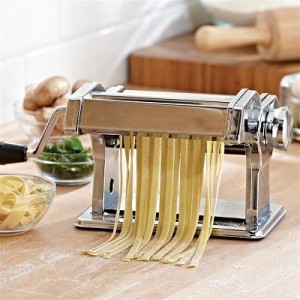
More evidence that low-calorie sweeteners are bad for your health
Studies show that artificial sweeteners can raise the risk of hypertension, metabolic syndrome, type 2 diabetes and heart disease, including stroke.

We hear it so often that it has almost ceased to be meaningful: you are what you eat.
But what does that really mean?
You don’t have to be a ‘foodie’ to understand that there is more to food culture than just counting calories, salt, fat sugar and additives.
In my mind it speaks to more than just the physical stuff we put in our mouths. It also speaks to the beliefs and philosophies we hold around food. It speaks to the ethics of what we eat – thus in addition to questions like: “Is it healthy?” and “Does it nourish?”, it asks “Is it natural?”, “Is it organic?”, “Is it fairly traded?” and “How far has it travelled?”
How we eat and what we eat says a lot about who we are as people. So it was with some dismay that I eyed a report which fell on my desk which shows that the European ready meals market has grown more than 14% in the past five years – and is due to grow another 12% by 2016.
The report by Swiss food and drink consultancy Food For Thought showed that in Europe we spent €30.5bn (£24bn) on ready meals in 2013, compared to €26.7bn (£21bn) five years earlier. The European market, it predicts, will be worth €40.85bn (£32bn) by 2016.
Three countries – France, Germany and, sadly, the UK – accounted for 60% of all of that spend, with Spanish shoppers accounting for another 12%. No other single European country accounted for more than 4% of the total.
According to FTT’s analysis canned pasta presents the most interesting growth opportunities” in our collective food future.
Canned pasta?! It’s enough to make you weep.
The report also notes that “Consumers are increasingly looking for premium ready meals which offer a quality dining experience without having to leave the house. There is also a demand for healthier ready meals as part of a balanced diet” and that “Quality marking and provenance labelling is becoming more important throughout Europe in the wake of the horsemeat scandal.”
Ah, the horsemeat scandal. For a brief shining second this massive public fraud which tried to pass off horsemeat as beef – and other types of meat – really did put a dent in our toxic love affair with ready meals.
A year after the story broke sales were still suffering. Manufacturers responded by lowering the prices of their ready meals, our personal bottom lines were cruelly revealed and sales slowly began to rise again.
People buy ready meals because they perceive them to be good value and because they perceive themselves to be time poor. Amazingly many still believe that they are ‘good enough’.
But studies show that the nutritional content of such food are most definitely not ‘good enough’. A 2012 study published in the British Medical Journal found that not one of the 100 supermarket ready meals analysed fully complied with nutritional guidelines set by the World Health Organization. Another study by the University of Glasgow went further, labelling ready meals as “nutritionally chaotic”.
Taking time to cook at home can occasionally be challenging, but it can also be an investment in your health, happiness and well being.
Serendipitously, a new study from the US has just found a strong correlation between healthy eating and preparing your own food.
On the other hand, people who spent the least amount of time making food spent the most money eating out and ate the most fast food.
Those who spent the most time preparing food typically consumed more fruit and vegetables and even saved a little money – in this study around $7 per family member per week.
We are what we eat. Apply that to the upward trend in ready meals and we become people who eat quickly and chaotically and with our eyes closed to the provenance and nutritional quality of our food.
Prepare our own meals and we become involved, organised and committed to being better fed and better informed.
Now, if you will excuse me, I’m going to go dust off my pasta maker…
Pat Thomas, Editor

Please subscribe me to your newsletter mailing list. I have read the
privacy statement